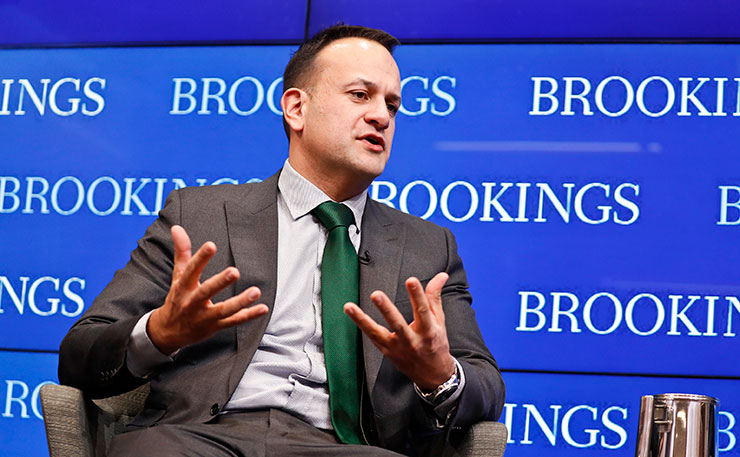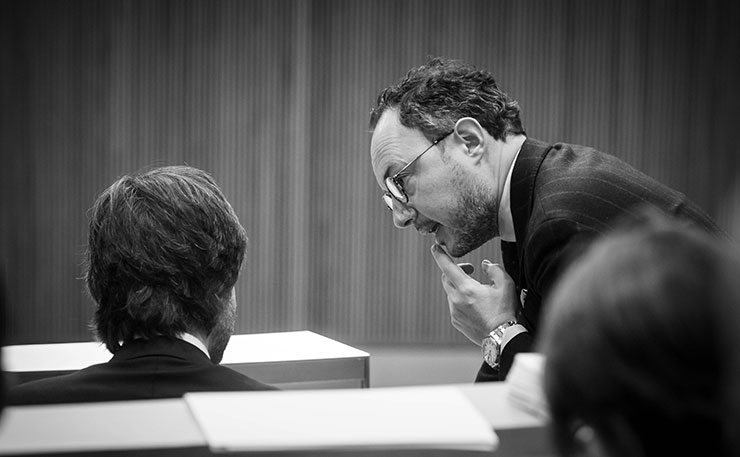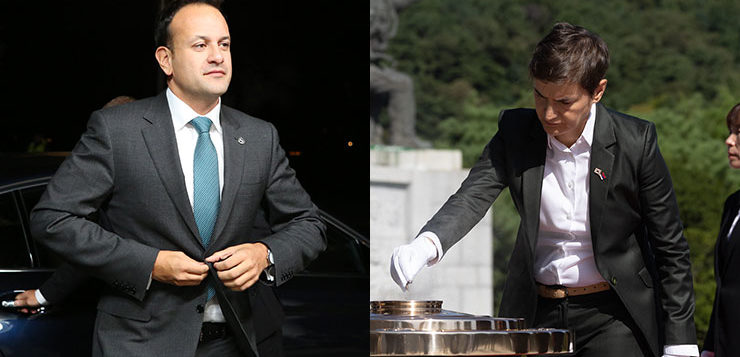It was a rough few days for the global LGBT community… at least, where politics is concerned.
On Monday, the world boasted five openly gay heads of government, but by week’s end, that number had almost halved, with the resignation on Thursday of Serbian Prime Minister Ana Brnabić, and then the shock announcement of the resignation of Irish Prime Minister Leo Varadkar overnight.
Brnabić and Varadkar were two of the more prominent figures in a growing number of LGBT politicians taking leading positions on the world stage. Their departure leaves just three openly gay heads of state or government – the Prime Ministers of France (Gabriel Attal) and Andorra (Xavier Espot Zamora), and the president of Latvia, Edgars Rinkēvičs.
Varadkar’s resignation over the weekend shocked even his colleagues, although if you’re a lover of irony, you probably appreciated the reasons behind it, particularly given his status as a staunch conservative. Reports Al Jazeera:
“Varadkar’s attempt to modernise references to family and women in the country’s 87-year-old constitution in a dual referendum earlier this month resulted in a humiliating and heavy defeat for the taoiseach (leader) and his political allies.
The first question in the referendum asked Irish voters for permission to widen the definition of family by amending wording so it read that families can be established “on marriage or on other durable relationships”.
The second question asked citizens whether the clause – “mothers shall not be obliged by economic necessity to engage in labour to the neglect of their duties in the home” – should be deleted and another – “The state recognises that the provision of care, by members of a family to one another by reason of the bonds that exist among them, gives to society a support without which the common good cannot be achieved, and shall strive to support such provision” – added.
Varadkar had described the polls, which deliberately fell on International Women’s Day on March 8, as a chance to do away with “very old-fashioned, very sexist language about women”.
At 38, Varadkar was the youngest prime minister in Ireland’s history, and the first multi-ethnic (his father is an Indian immigrant) and openly gay man to lead the country, which he did from 2017 to 2020, and then again from 2022 until this week. He will step down as soon as his party elects a new leader.

In Serbia, Brnabić’s departure wasn’t entirely unexpected – amid widespread protests, Serbia was forced to early elections last year, and while her conservative party won a majority in the recent poll, accusations of dodgy elections drew threats of a suspension of funding from the European Union due to the government’s “persistent and systematic abuse of institutions and media to gain an unfair advantage”.
Brnabić – also a conservative - had served three terms as Serbia’s Prime Minister. She was replaced by ‘populist left-wing’ Foreign Minister Ivica Dacic, until a new government is approved by the parliament. Notably, Dacic’s mentor was renowned ethnic cleanser Slobodan Milosevic, who held his own unique distinction - the first sitting leader to be charged with war crimes, as a result of his actions during the Yugoslav Wars during the 1990s.

It’s been an interesting couple of decades for LGBT politicians. At the turn of the century, no openly same-sex attracted politician had ever led a nation. Per-Kristian Foss, a Norwegian politician, changed all that in January 2002 after being briefly installed for two days as Acting Prime Minister of Norway (both the then prime minister and foreign minister were abroad).
But it wasn’t until almost a decade later that the first permanent head of government finally emerged when Jóhanna Sigurðardóttir made international headlines after she was elected prime minister of Iceland in 2009.

A year later, Sigurðardóttir became the first world leader to marry her partner (Jónína Leósdóttir) while in office, after her government legalised same-sex marriage. At the same time, her government banned strip clubs and paying for nudity in restaurants, along with other means of employers profiting from nudity, in the first prohibitions of its kind in the western world.
Sigurðardóttir served until 2013, when national elections delivered a 17 per cent swing against her left-wing Social Democratic Alliance party, ending her coalition government with the Left-Green Movement, and their moves towards joining the European Union.
In Andorra, Espot Zamora came out only last year, after being elected to lead the nation in 2019.

Interestingly, it’s only European countries that have so far elevated gay and lesbian politicians to lead their nations. And contrary to what you might expect, it’s predominantly come from the conservative side of politics.
Six of the 10 political leaders are from centre-right or right-wing parties, and only three hail from left-wing or leaning parties (one is from a centrist party).
Australia has only ever had one openly LGBT head of government – Andrew Barr, who became Chief Minister of the ACT in 2014.
Bob Brown was both the first openly gay member of Australian Parliament, and leader of a major Australian political party.
Donate To New Matilda
New Matilda is a small, independent media outlet. We survive through reader contributions, and never losing a lawsuit. If you got something from this article, giving something back helps us to continue speaking truth to power. Every little bit counts.





